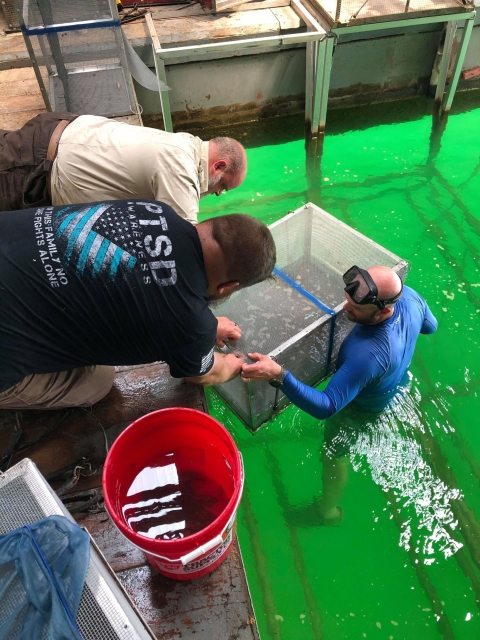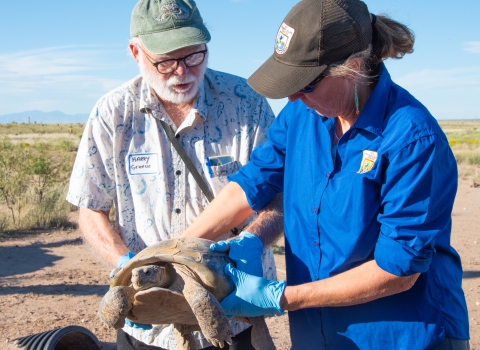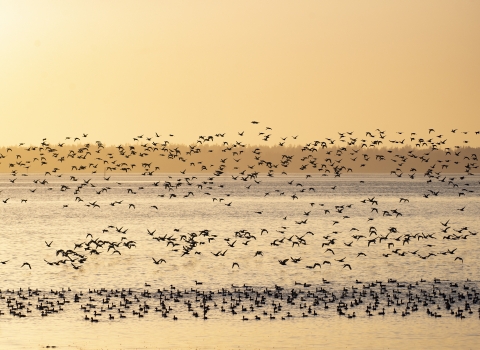Time was ticking for staff at Erwin and Dale Hollow NFH to add Round Hickorynut (Obovaria subrotunda) mussels to their freshwater mussel propagation efforts this year. With this species on the tail-end of their spawning season, hatchery staff had to act fast! Erwin NFH staff traveled to middle Tennessee in search of gravid (with larva) Round Hickorynut females on the Duck River. After an extensive river bottom inspection, a total of five females were collected to use as broodstock broodstock
The reproductively mature adults in a population that breed (or spawn) and produce more individuals (offspring or progeny).
Learn more about broodstock . The following day, the team used electrofishing techniques to collect nearly 200 fantail darters to serve as host fish for the glochidia (mussel larva). These fish, along with the Round Hickorynut broodstock, were transported to Dale Hollow NFH’s mussel facility where the propagation process began. Glochidia were flushed from the gills of the gravid females, and placed in a small bucket, and batch infested onto the darters. Once larva were attached, the darters were then placed into cages and submerged into Dale Hollow Lake with the help of Dale Hollow NFH and Cumberland River Aquatic Center staff.
In the next few weeks, the juvenile mussels will detach from the gills and fins of the host fish, fall into the substrate at the bottom of the cages, and grow to maturity to be harvested in 2022. This collaborative effort is expected to make strides in combating the significant decline of these freshwater mussel species.






